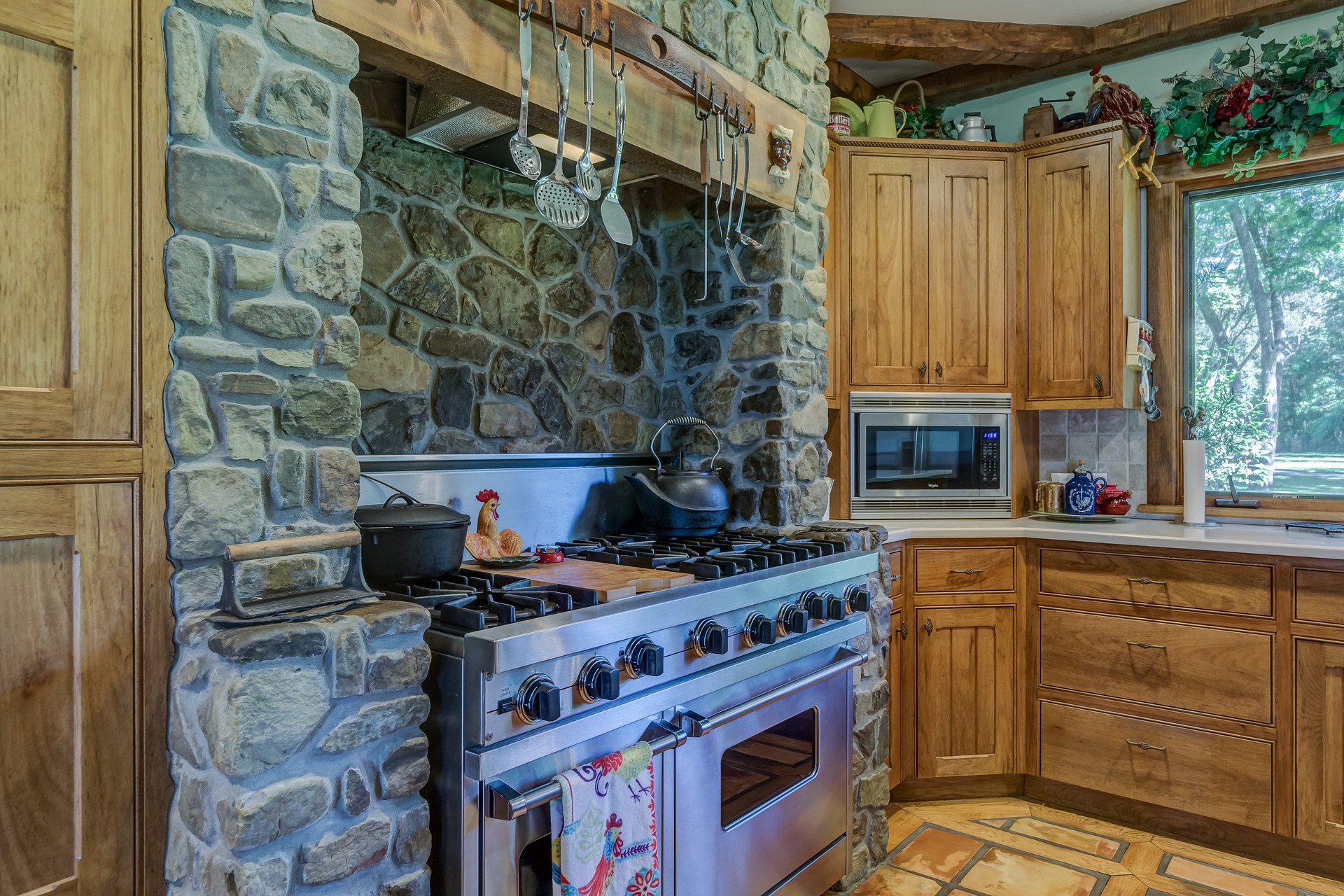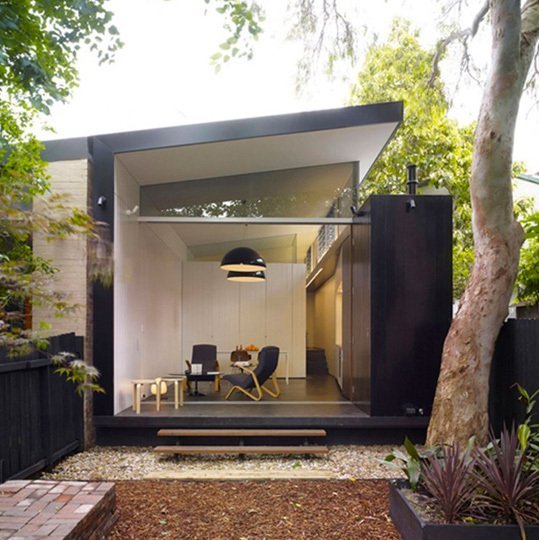Social Links Widget
Click here to edit the Social Media Links settings. This text will not be visible on the front end.
Questions to ask your home inspector


To get a quality home inspection, ask the right questions before you put your inspector to work. Here are some of the basics.
What does your inspection cover?
Insist that you get it in writing. Then make sure that it’s in compliance with state requirements and includes the items you want inspected.
How long have you been in business?
Ask for referrals, especially with newer inspectors.
Are you experienced in residential inspections?
Residential inspection is a unique discipline with specific challenges.
Do you do repairs or make improvements based on the inspection?
Some states and/or professional associations allow the inspector to perform repair work on problems uncovered in an inspection. If you’re considering engaging your inspector to do repairs, be sure to get referrals.
How long will the inspection take?
A typical single-family dwelling takes two to three hours.
How much will it cost?
Costs can vary depending upon a variety of things, such as the square footage, age and foundation of the house.
What type of report will you provide and when will I get it?
Ask to see samples to make sure you understand his reporting style. Also make sure the timeline works for you.
Can I be there for the inspection?
This could be a valuable learning opportunity. If your inspector refuses, this should raise a red flag.
Are you a member of a professional home inspector association? What other credentials do you hold?
Ask to see their membership ID; it’s some assurance.
Do you keep your skills up-to-date through continuing education?
An inspector’s interest in continuing education shows a genuine commitment to performing at the highest level. It’s especially important with older homes or homes with unique elements.
Any other good questions to ask? Post yours now!
For more information on Windermere Evergreen please contact us here.
Tiny Homes Promote Quality over Quantity

 Are you fascinated about downsizing? Do you love small places? Does a simple and serene ambiance sound like music to your ears? Then hop on the bandwagon and get yourself a ‘tiny house’ because we all know the best things come in small packages.
Are you fascinated about downsizing? Do you love small places? Does a simple and serene ambiance sound like music to your ears? Then hop on the bandwagon and get yourself a ‘tiny house’ because we all know the best things come in small packages.
What’s a tiny house? Tiny houses have recently hit the real estate market by storm. The to-go models typically range from 100-175 square feet, while the larger, more permanent cottage styles are usually around 250 to 500 square feet. With a multitude of floor plan choices that include full kitchens and bathrooms, heating, AC, and a reasonable range of prices, a tiny house couldn’t be more practical.
What tiny house are you? The best part about tiny homes is that you get to pick whichever one compliments your lifestyle and needs the most. Are you more of a beach house or cabin in the woods type of person? What about a pool house for your backyard or an art or yoga studio? Or maybe you’re guilty of always wishing there was somewhere else for your mother-in-law to stay while she’s in town. On the other hand, if you’re looking for something less permanent, then a to-go model might be more your speed. You can grab your house whenever you are feeling an itch of wanderlust and head out on the open road. You can park it near the coast or somewhere concealed for a relaxing and quiet weekend. If being on the water is more your thing, there are even tiny floating homes.
Who owns one? The small, but rapidly growing number of tiny house homeowners can be found all over the country. People are shedding their square footage and downsizing from coast to coast. In 2013, the tiny home movement saw 2,600 residents, while 2014 currently has about 4,000 residents and growing. People are joining the tiny house movement for various reasons. Some want to downsize due to environmental or financial concerns, others are looking for more time and freedom in their lives. Having tiny homes encourages people to live beyond their own walls and spend more time in the outdoors and their community. Tiny homes have redefined the American dream by promoting quality over quantity.
If you think you might want a tiny house as your primary home, the only sacrifice is space; the gains however, are countless. Tiny homes come in all shapes and sizes and can be modern, minimal, or luxurious. These tiny homes are a fun and exciting endeavor to which you can easily add your own flavor. And because you can get a prefab tiny home delivered right to your door, the home buying process is as simple as the homes themselves.
If you want to check out more house styles you can visit our Tiny House page on Pinterest.
For more information on Windermere Evergreen please contact us here.
In the market to buy a home? Make a list and check it twice.

 Are you thinking of buying a home, and you aren’t sure exactly where to start? Here is a checklist to help you get ready to make your home dreams come true:
Are you thinking of buying a home, and you aren’t sure exactly where to start? Here is a checklist to help you get ready to make your home dreams come true:
Decide where you want to live! Are you where you want to be? Generally, you will want to plan on staying in your home for at least 5-7 years in order for you investment to pay off, so it’s important to look at homes in an area that will meet your needs over the long term.
Explore the market. Once you know where you will be looking for homes, you can start to explore. Get to know the neighborhoods, the school districts, the local businesses, and community amenities.
Make a list of what you need and want. Create a list of the things in a home that are most important to you. Like the number of bedrooms/bathrooms, home features, commute times, etc. Then make a list of things that you would like to have, but aren’t as important, such as a fireplace, a large back yard, or a pool. It may help you to create a Pinterest board with your favorite home features that you can share with your agent when you’re ready to start looking.
Search for comparable houses in your market. Once you know where you’d like to buy and what type of house you’re looking for, you can start to realistically assess how much it will cost. Use an online search tool like windermere.com to see what’s for sale in your preferred neighborhood(s) and the value of the homes.
Take a good look at your finances. Once you have an idea of what homes cost, you can start figuring out how much money you need for a down payment, monthly mortgage payments, property taxes, etc. Make sure to check your credit score to ensure that everything is in order before applying for a home loan.
Develop your financial plan. Determine how much you need to save for your down payment and create a plan and timeline to achieve this goal. Outstanding debt can drag down your credit score, so make sure that paying down debt is a part of your plan.
Find a real estate agent! Once you’ve met your financial goals, it’s time to find a real estate agent. The best place to start is by asking friends and family for a referral. You can also search on real estate websites, like windermere.com, to find an agent that specializes in the area you are looking to live.
Get pre-approved for your home loan. Your agent should be able to refer you to a mortgage representative who can assist with the financing of your new home. The first step is to get pre-approved so that you know exactly how much home you can afford. Not only does this allow you to refine your home search, but it can also give you a competitive advantage when there are multiple buyers bidding on the same property.
Start shopping! This process involves everything from searching for homes online to visiting open houses on the weekends. But perhaps the most important part of this process is going on a good-old-fashioned home tour with your real estate agent. Looking for homes online lets you search more efficiently, but there’s nothing like seeing the home – and its surroundings – first hand.
The bidding process. The bidding process differs from region to region and season to season, but ultimately you should look to your agent to help you develop a plan based on your priorities and financial abilities. Depending on the market where you’re buying, there could be multiple buyers bidding for the same home, so it’s a good idea to have a well thought out strategy ahead of time.
Offer acceptance & earnest money. Once a seller accepts your offer you are required to put down an earnest money deposit to show that you are committed to purchasing the house. This money is held jointly by the seller and the buyer in a trust or escrow account. The earnest money goes towards your down payment and closing costs upon the closing of the home sale.
Home inspection. Most home sales are pending until a home inspection is completed. This is when a home inspector checks the condition of a home, such as the foundation, roof, windows, insulation, electrical, and heating components. If a home inspection turns up the need for repairs, it can end up being a tool for re-negotiations with the seller.
Home appraisal. This is an all-important step to getting the financing you need for your new home. An appraisal is performed to assess the true value of a home, which in turn, determines how much a lender is willing to give you to buy it. Appraisals protect banks from getting stuck with property that’s worth less than they’ve invested. And it protects you from paying too much for a house simply because it was love at first sight.
Purchase your home insurance. A standard homeowner’s insurance policy typically covers your home, your belongings, injury or property damage to others, and living expenses if you are unable to live in your home temporarily because of an insured disaster.
Closing! The closing marks the final step of the home purchase process. This is when the deed to a property is legally transferred from the seller to the buyer who then takes possession of the home. In simple terms, this is when you get the keys to your new home and you can officially move in.
If you have any additional questions about the home buying process, contact a local real estate agent.
Selling Your Home? Go Through This Safety Checklist With Your Real Estate Agent

 Selling your home can be stressful for many reasons. Not only are you trying to get the best financial return on your investment, but you might also be working on a tight deadline. There’s also the pressure to keep your home clean and organized at all times for prospective buyers. One thing you can be sure of when selling your home is that there will be strangers entering your space, so it’s important for you and your agent to take certain safety precautions.
Selling your home can be stressful for many reasons. Not only are you trying to get the best financial return on your investment, but you might also be working on a tight deadline. There’s also the pressure to keep your home clean and organized at all times for prospective buyers. One thing you can be sure of when selling your home is that there will be strangers entering your space, so it’s important for you and your agent to take certain safety precautions.- Go through your medicine cabinets and remove all prescription medications.
- Remove or lock up precious belongings and personal information. You will want to store your jewelry, family heirlooms, and personal/financial information in a secure location to keep them from getting displaced or stolen.
- Remove family photos. We recommend removing your family photos during the staging process so potential buyers can see themselves living in the home. It’s also a good way to protect your privacy.
- Check your windows and doors for secure closings before and after showings. If someone is looking to get back into your home following a showing or an open house, they will look for weak locks or they might unlock a window or door.
- Consider extra security measures such as an alarm system or other monitoring tools like cameras.
- Don’t show your own home! If someone you don’t know walks up to your home asking for a showing, don’t let them in. You want to have an agent present to show your home at all times. Agents should have screening precautions to keep you and them safe from potential danger.
Talk to your agent about the following safety precautions:
- Do a walk-through with your agent to make sure you have identified everything that needs to be removed or secured, such as medications, belongings, and photos.
- Go over your agent’s screening process:
- Phone screening prior to showing the home
- Process for identifying and qualifying buyers for showings
- Their personal safety during showings and open houses
- Lockboxes to secure your keys for showings should be up to date. Electronic lockboxes actually track who has had access to your home.
- Work with your agent on an open house checklist:
- Do they collect contact information of everyone entering the home?
- Do they work with a partner to ensure their personal safety?
- Go through your home’s entrances and exits and share important household information so your agent can advise how to secure your property while it’s on the market.
Your safety, as well as that of your agent and your home, is of paramount importance when selling a property. For more information, visit:
http://www.mercurynews.com/los-gatos/ci_26509084/realtors-issue-safety-tips-folks-who-are-selling
For more information on Windermere Evergreen please contact us here.
How to Hire a Home Inspector

 Is this year you make the leap to buy your first home?
Is this year you make the leap to buy your first home?
A home is a major investment and, for many people, the greatest financial asset they have. With so much at stake, it makes sense to do what you can to protect your financial interest. Getting a home inspection is a smart, simple way to do just that.
When you make a written offer on a home, insist that the offer provide that your contract is contingent on a home inspection conducted by a qualified inspector. You’ll have to pay for the inspection yourself, but an investment of a few hundred dollars could save you thousands of dollars and years of headaches. If you’re satisfied with the results of the inspection and are assured that the home you’re purchasing is in good shape, you can proceed with your transaction, confident that you are making a smart purchase.
Hire a professional
When you are ready to hire a home inspector, be sure they’re licensed in your state. They should be able to provide you with their license number, which you can use to verify their status with the appropriate government agency. The best way to find an inspector is to ask your real estate agent for a recommendation. Even among licensed and qualified home inspectors, there can be a difference in knowledge, performance, and communication skills, so it’s a good idea to do some research to ensure that you get the type of inspection you need.
What to ask your home inspector
Ask the right questions to make sure you are hiring the right professional for the job.
What does your inspection cover?
Insist that you get this information in writing. Then make sure that it’s in compliance with state requirements and includes the items you want inspected.
How long have you been in the business?
Ask for referrals, especially with newer inspectors.
Are you experienced in residential inspections?
Residential inspection in a unique discipline with specific challenges, so it’s important to make sure the inspector is experienced in this area.
Do you make repairs or make improvements based on inspection?
Some states and/or professional associations allow the inspector to perform repair work on problems uncovered in an inspection. If you’re considering engaging your inspector to do repairs, be sure to get referrals.
How long will the inspection take?
A typical single-family dwelling takes two to three hours.
How much will it cost?
Costs can vary depending upon a variety of things, such as the square footage, age, and foundation of the house.
What type of report will you provide and when will I get it?
Ask to see samples to make sure you understand his or her reporting style. Also make sure the timeline works for you.
Can I be there for the inspection?
This could be a valuable learning opportunity. If your inspector refuses, this should raise a red flag.
Are you a member of a professional home inspector association? What other credentials do you hold?
Ask to see their membership ID; it provides some assurance.
Do you keep your skills up to date through continuing education?
An inspector’s interest in continuing education shows a genuine commitment to performing at the highest level. It’s especially important with older homes or homes with unique elements.
What doesn’t a home inspection cover?
For a variety of reasons, some homes will require specialty inspections that are not covered by a typical home inspection. A specialty inspection might include such items as your home’s sewer scope, septic system, geotechnical conditions (for homes perched on steep slopes or where there are concerns regarding soil stability) or underground oil storage tank. If you have any questions about whether or not your home needs a specialty inspection, talk to your real estate agent.
The Birdies – And Bogeys – Of Buying A Golf Course Home

 Living on a golf course has obvious appeal to anyone who enjoys teeing up on a regular basis. In addition to having your next round of golf right outside your door, living on a golf course often affords you a view of a sprawling green vista. Many golf communities also feature newer homes and offer extra amenities such as spas, planned activities and more.
Living on a golf course has obvious appeal to anyone who enjoys teeing up on a regular basis. In addition to having your next round of golf right outside your door, living on a golf course often affords you a view of a sprawling green vista. Many golf communities also feature newer homes and offer extra amenities such as spas, planned activities and more.Yet for all their upsides, there are aspects of living on a golf course that might give you pause. They include:
Stray golf balls: The possibility of an airborne golf ball landing on you, your car or your home is a definite possibility when you’re living on a golf course. If you’re especially concerned about this, search for a home further away from the fairways. Also make sure you have the right insurance in place.
Noise from golf carts: You’ll want to check where the path for golf carts runs. If you’re close to a path, you’ll likely be subject to the noise of carts and people zipping by for a good part of each day.
Noise from the golf course: Things can get noisy if you’re very close to the course. This is especially true if your house borders a tee box. Another thing to consider is noise from groundkeepers. Courses are typically mowed very early in the morning. If your master bedroom faces out to the course, it’s likely your sleep could be interrupted by noise and headlights.
Deed restrictions: It’s common for golf communities to be regulated by a homeowners’ association in addition to having recorded CC&R’s that were designated upon the development of the community. A thorough review of the HOA Bylaws and the CC&R’s is very important. If the either set of regulations will seriously hinder your quiet enjoyment of your own home, or place too much demand/control on structural improvements, paint colors, yard maintenance, etc. then you may want to just stick with your membership and live elsewhere.
For more information on Windermere Evergreen please contact us here.
New Features vs. Character


We are often asked, “Which is the better buy, a newer or older home?” Our answer: It all depends on your needs and personal preferences. We decided to put together a list of the six biggest differences between newer and older homes:
The neighborhood
Surprisingly, one of the biggest factors in choosing a new home isn’t the property itself, but rather the surrounding neighborhood. While new homes occasionally spring up in established communities, most are built in new developments. The settings are quite different, each with their own unique benefits.
Older neighborhoods often feature tree-lined streets; larger property lots; a wide array of architectural styles; easy walking access to mass transportation, restaurants and local shops; and more established relationships among neighbors.
New developments are better known for wider streets and quiet cul-de-sacs; controlled development; fewer aboveground utilities; more parks; and often newer public facilities (schools, libraries, pools, etc.). There are typically more children in newer communities, as well.
Consider your daily work commute, too. While not always true, older neighborhoods tend to be closer to major employment centers, mass transportation and multiple car routes (neighborhood arterials, highways and freeways).
Design and layout
If you like Victorian, Craftsman or Cape Cod style homes, it used to be that you would have to buy an older home from the appropriate era. But with new-home builders now offering modern takes on those classic designs, that’s no longer the case. There are even modern log homes available.
Have you given much thought to your floor plans? If you have your heart set on a family room, an entertainment kitchen, a home office and walk-in closets, you’ll likely want to buy a newer home—or plan to do some heavy remodeling of an older home. Unless they’ve already been remodeled, most older homes feature more basic layouts.
If you have a specific home-décor style in mind, you’ll want to take that into consideration, as well. Professional designers say it’s best if the style and era of your furnishings match the style and era of your house. But if you are willing to adapt, then the options are wide open.
Materials and craftsmanship
Homes built before material and labor costs spiked in the late 1950s have a reputation for higher-grade lumber and old-world craftsmanship (hardwood floors, old-growth timber supports, ornate siding, artistic molding, etc.).
However, newer homes have the benefit of modern materials and more advanced building codes (copper or polyurethane plumbing, better insulation, double-pane windows, modern electrical wiring, earthquake/ windstorm supports, etc.).
Current condition
The condition of a home for sale is always a top consideration for any buyer. However, age is a factor here, as well. For example, if the exterior of a newer home needs repainting, it’s a relatively easy task to determine the cost. But if it’s a home built before the 1970s, you have to also consider the fact that the underlying paint is most likely lead0based, and that the wood siding may have rot or other structural issues that need to be addressed before it can be recoated.
On the flip side, the mechanicals in older homes (lights, heating systems, sump pump, etc.) tend to be better built and last longer.
Outdoor space
One of the great things about older homes is that they usually come with mature tress and bushes already in place. Buyers of new homes may have to wait years for ornamental trees, fruit trees, roses, ferns, cacti and other long-term vegetation to fill in a yard, create shade, provide privacy, and develop into an inviting outdoor space. However, maybe you’re one of the many homeowners who prefer the wide-open, low-maintenance benefits of a lightly planted yard.
Car considerations
Like it or not, most of us are extremely dependent on our cars for daily transportation. And here again, you’ll find a big difference between newer and older homes. Newer homes almost always feature ample off-street parking: usually a two-care garage and a wide driveway. An older home, depending on just how old it is, may not offer a garage—and if it does, there’s often only enough space for one car. For people who don’t feel comfortable leaving their car on the street, this alone can be a determining factor.
Finalizing your decision
While the differences between older and newer homes are striking, there’s certainly no right or wrong answer. It is a matter of personal taste, and what is available in your desired area. To quickly determine which direction your taste trends, use the information above to make a list of your most desired features, then categorize those according to the type of house in which they’re most likely to be found. The results can often be telling.
If you have questions about newer versus older homes, or if you are looking for a qualified Real Estate Agent please contact us here.
A Quick Guide to Understanding Real Estate Designations

 What do those letters and acronyms mean at the end of your real estate agent’s name? We’re here to answer that question and explain why it might matter to you. Like other professionals, real estate agents have the ability to specialize in certain areas of the business by earning designations. Those acronyms signify that they have achieved a specific designation through extensive training and education. In simple terms, designations enable agents to increase their skills, proficiency, and knowledge in various real estate sectors. They can also provide agents with access to members-only marketing tools and resources which can be an added benefit to their clients.
What do those letters and acronyms mean at the end of your real estate agent’s name? We’re here to answer that question and explain why it might matter to you. Like other professionals, real estate agents have the ability to specialize in certain areas of the business by earning designations. Those acronyms signify that they have achieved a specific designation through extensive training and education. In simple terms, designations enable agents to increase their skills, proficiency, and knowledge in various real estate sectors. They can also provide agents with access to members-only marketing tools and resources which can be an added benefit to their clients.So why should real estate designations matter to you? Depending on what your specific real estate needs are, certain designations might mean more to you than others. For example, if you are in need of a real estate agent who can help you or your loved ones transition to a senior living facility, you may want to work with a Senior Real Estate Specialist (SRES), because they are trained to understand the unique needs of seniors and their families in this type of situation. Or, perhaps you’re selling your LEED-certified home and you want an agent who specializes in marketing these types of properties, then you may want to work with a Certified Green Real Estate Professional (CG-REP).
The National Association of REALTORS® offers the largest number of professional designations, which are designed to provide real estate agents with specialized training in a variety of areas. Here is a list of those designations and how they benefit real estate consumers.
Accredited Staging Professional (ASP): By increasing a home’s appeal to a higher number of buyers, home staging is commonly considered one of the best ways to sell a property more swiftly and for more money. Agents with an ASP designation understand the art of home staging and use special marketing techniques to increase the market value of a home.
Senior Real Estate Specialist (SRES): If you are considering retiring, downsizing or are trying to help an aging loved one transition to an assisted living facility, a SRES trained REALTOR is qualified to help support clients over the age of fifty with lifestyle transitions and major financial decisions. This includes knowing what to look for if you prefer to age in place, finding the resources to support a move from movers to financial advisors, and more.
NAR Green Designation (GREEN): If you are looking to buy or sell a LEED Certified home, a GREEN REALTOR will have the expertise to help you. They are trained in sustainable and earth-friendly building trends, energy efficiency, and more.
Accredited Buyers Representative (ABR): If you are a first time homebuyer you may want to find an ABR designated agent. They are specially trained to work with buyers through every step of the home-buyer process from mortgage to closing.
Accredited Land Consultant (ALC): Land experts have expert knowledge and experience in land auctioning, leasing, development, farm management, land investment analysis, and tax deferment. This type of designation is not needed for a general home purchase, but if you are looking at investment, development, or farming properties, an ALC can help.
Certified Commercial Investment Member (CCIM): Purchasing or leasing space for your business is different than finding a home for yourself or investment property. If you need a commercial space, a certified commercial agent can help you locate this type of property and negotiate the intricacies of the contracts.
Certified International Property Specialists (CIPS): International real estate can differ greatly from domestic transactions. If you are looking to purchase a home abroad, consider working with an agent who has their CIPS and specializes in international real estate. They can provide tools for understanding the international process, access to a global referral network, and additional international resources.
Certified Property Managers (CMP): Managing a rental property can be a complicated, time-consuming process. There are specific laws you have to follow, resident screenings, 24 hour maintenance issues, and more. A CMP is specially trained to manage your residential or commercial property on your behalf.
Certified Real Estate Brokerage Manager (CRB): Managing a real estate business involves much more than overseeing an office with staff, marketing, and other resource needs. CRBs go through certification and extensive training for supervising a real estate brokerage, with essential business development and management requirements.
Certified Residential Specialist (CRS): The prestigious CRS designation is awarded to experienced REALTORS who have completed advanced professional training and demonstrated outstanding professional achievement in residential real estate. This designation signifies one of the highest levels of success a REALTOR can achieve.
Seller Representative Specialist (SRS): Sometimes referred to as a “listing agent”, there are agents who specialize in working specifically with sellers. These agents have special training in all areas of the home selling process, providing increased professional standards and marketing expertise.
Certifications:
Military Relocation Professional Certificate (MRP): If you are a military service member or are relocating on behalf of the military, an MRP is specifically trained to address your relocation needs. They can help you navigate through the financial process because they are aware of the benefits available to service members and can address the unique relocation needs of military clients.
Resort & Second-Home Property Specialist Certification (RSPS): If you have a destination property, consider working with a RSPS certified agent to manage the buying, selling, or management process. They have training specific to managing investment, retirement, resort, and vacation destination properties.
Short Sale & Foreclosure Certification (SFR®): Short sales are different than typical home sales because they deal directly with financial institutions. SRF certified agents are experienced at negotiating these types of transactions and are trained to work with finance, tax and legal professionals on behalf of distressed sellers.
Go here for a complete list of designations: http://www.realtor.org/designations-and-certifications
If you are looking for a qualified Real Estate Agent please contact us here.
Why Owning a Home is Such a Smart Investment

 After succumbing to the “Great Recession” ten years ago, the stock market has made a comeback. So, does that mean you should forget about buying a new house and invest in stocks instead? The answer to that question, say experts, depends on your investing savvy, your financial discipline, your age, and your current financial situation.
After succumbing to the “Great Recession” ten years ago, the stock market has made a comeback. So, does that mean you should forget about buying a new house and invest in stocks instead? The answer to that question, say experts, depends on your investing savvy, your financial discipline, your age, and your current financial situation.
The first question you need to ask yourself is, “Am I disciplined enough to invest in stocks?” According to two professors who recently studied 30 years of personal-finance performance, you need to be someone with exceptional financial discipline if you want to earn real money in the stock market. Or, you could simply buy a house.
When you buy real estate, the down payment and monthly mortgage payments force you to set aside a significant amount of your earnings on a regular basis. It’s automatic. But if you can’t summon the same discipline to invest that same amount of money in the stock market on an equally regular basis, then stocks are probably going to be a losing proposition, according to the professors’ study.
“We find that if people don’t invest all the money, actually about 90% of the time, you’re better off buying real estate,” says Professor Eli Beracha, co-author of the study.
Other issues that make stock investing risky
Investing guru James Altucher wrote a column in The Wall St. Journal titled, “8 Reasons You Stink at Trading Stocks.” In it, he argues that most non-professionals don’t have the investing savvy required to be successful in the stock market. Here are a few telling excerpts:
- “Nine out of 10 people think they are above-average drivers. Nine out of 10 people think they are above-average investors. Both are mathematically impossible.”
- “Most people sell at the bottom and buy at the top—the opposite of what you want to do as an investor—because they let emotions get in the way of patience and strategy.”
- “It’s really hard to own stocks. It’s not just picking a stock and watching it go up 1,000%. It’s buying it and sometimes watching it go down 80% before it ends up rising 20% above your purchase price. It’s waiting. It’s patience. Psychology is at least 80% of the game. And knowing when to sell? Even harder.”
Age Matters
When you’re young, many financial advisors encourage investing in things like individual stocks. With a long career ahead, you have time to wait for any bad investments to turn around before you may really need the money. But once you’re a little older, with a family, and starting to focus on your financial future, that’s when advisers recommend you buy things like real estate—a conservative investment with a long history of stable, predictable earnings.
The type of loan you choose also makes a difference
If you want to both own a home and invest in stocks, consider a 30-year home loan, which will significantly reduce your monthly payments and leave you with extra money for playing the market. (Just remember the tradeoff: You’ll end up paying thousands of dollars more in interest over the life of the loan.)
If you don’t have a burning desire to play the stock market, choose a 15-year home loan. You’ll pay less interest over the life of the loan, you’ll build equity faster, and, obviously, you’ll be mortgage-free 15 years sooner.
The tax advantages of owning real estate
As a homeowner, you’re entitled to a bevy of tax benefits you don’t get as a stock investor. You can deduct your mortgage interest and property taxes from your annual tax return. Plus, depending on your circumstances, you could also get a deduction or credit for any home-office expenses, moving expenses, capital gains, any “points” used to lower your interest rate, and more.
One caveat: investing in real estate takes time
No matter what some of those reality TV programs show, buying a home should not be viewed as a get-rich-quick scheme. But if you think you’re ready to put down roots for as long as seven years, chances are very good that any home you purchase will appreciate significantly during that time (even if the economy runs into some bumps along the way).
The non-financial benefits
Of course, not all of the benefits of owning a home are financial. For most Americans, their home is a source of tremendous pride, comfort, security and freedom. Most of us also use our homes to showcase our personality, through paint colors, furnishings, landscaping, yard signs, holiday decorations and so much more.
Yes, the stock market is on an upswing currently (depending on the week), but if you want an investment with a long-term track record of consistent returns—plus tax breaks and a variety of personal perks—you may want to buy a home instead.
If you have questions about the buying or selling process, or are looking for an experienced agent in your area, connect with us here.
Selling Your Home: The Impact of Staging

 How can you make your home more attractive to potential buyers? The answer is with some “home staging”. According to the Wall Street Journal, implementing some basic interior design techniques can not only speed up the sale of your home but also increase your final selling price.
How can you make your home more attractive to potential buyers? The answer is with some “home staging”. According to the Wall Street Journal, implementing some basic interior design techniques can not only speed up the sale of your home but also increase your final selling price.It all comes down to highlighting your home’s strengths, downplaying its weaknesses, and making it more appealing to the largest pool of prospective buyers. Staging an empty house is also important to help buyers visualize how the spaces would be used, and to give the home warmth and character.
Cohesiveness Is Key
Make the inside match the outside. For example, if the exterior architectural style of your house is Victorian or Craftsman Bungalow, the interior should be primarily outfitted with furniture styles from essentially the same era. Prospective buyers who like the exterior style of your home are going to expect something similar when they step inside. If the two styles don’t agree or at least complement each other, there is likely going to be an immediate disconnect for the buyer. Contact your agent to help determine the architectural style of your home and what makes it unique.
There is always room for flexibility. Not all your furnishings need to match, and even the primary furnishings do not need to be an exact match to the architectural style of your home. To create cohesion, you simply need to reflect the overall look-and-feel of the exterior.
The Role of Personal Expression
Every home is a personal expression of its owner. But when you become a seller, you’ll want to deemphasize much of the décor that makes a place uniquely yours and instead look for ways to make it appeal to your target market. Keep in mind, your target market is made up of the group of people most likely to be interested in a home like yours—which is something your agent can help you determine.
Your Goal: Neutralize and Brighten
Since personal style differs from person to person, a good strategy to sell your home is to “neutralize” the design of your interior. A truly neutral interior design allows people touring the house to easily imagine their own belongings in the space—and to envision how some simple changes would make it uniquely their own.
In short, you want to downplay your own personal expression, while making it easy for others to mentally project their own sense of style on the space. Ideas include:
- Paint over any bold wall colors with something more neutral, like a light beige, a warm gray, or a soft brown. The old advice used to be, “paint everything white,” but often that creates too sterile of an environment, while dark colors can make a room look small, even a bit dirty. Muted tones and soft colors work best.
- Consider removing wallpaper if it’s a bold or busy design.
- Replace heavy, dark curtains with neutral-colored shear versions; this will soften the hard edges around windows while letting in lots of natural light.
- Turn on lamps, and if necessary, install lighting fixtures to brighten any dark spaces—especially the entry area.
- Make sure everything is extremely clean. You may even want to hire professionals to give your home a thorough deep clean. Remember, the kitchen and bathrooms are by far the two most important rooms in a house when selling, so ongoing maintenance is important.
The Importance of De-Cluttering
Above all, make sure every room—including closets and the garage—is clutter-free. Family photos, personal memorabilia, and collectibles should be boxed up. Closets, shelves, and other storage areas should be mostly empty. Work benches should be free of tools and projects. Clear the kitchen counters, store non-necessary cookware, and remove all those magnets from the refrigerator door.
The same goes for furniture. If removing a chair, a lamp, a table, or other furnishings will make a particular space look larger or more inviting, then by all means do it.
You don’t want your home to appear cold, un-loved, or unlived-in, but you do want to remove distractions and provide prospective buyers with a blank canvas of sorts. Plus, de-cluttering your home now will make it that much easier to pack when it comes time to move.
Where to Start
Contact your agent for advice on how to most effectively stage your home or for a recommendation on a professional stager. While the simple interior design techniques outlined above may seem more like common sense than marketing magic, you’d be surprised at how many homeowners routinely overlook them. And the results are clear: staging your house to make it more appealing to your target buyer is often all it takes to speed the sale and boost the price. For more information about Windermere in Evergreen please click here .
 Facebook
Facebook
 X
X
 Pinterest
Pinterest
 Copy Link
Copy Link
